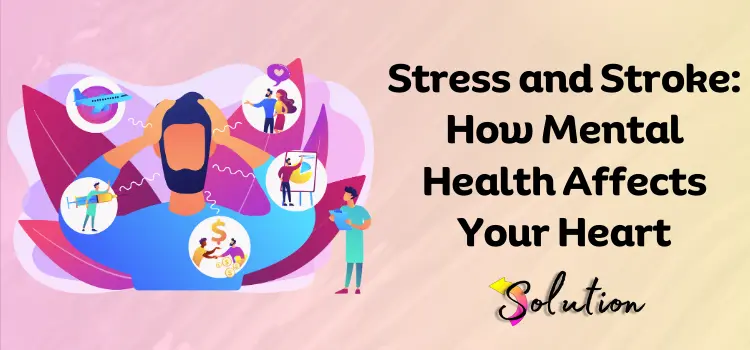
Anger and high blood pressure are inextricably linked, and chronic high blood pressure raises the risk of heart attack and stroke. While many individuals are aware of this link, the underlying impact of anger on heart health is frequently neglected. According to research, even small bursts of anger might temporarily impede blood vessels’ capacity to expand properly, which is critical in preventing artery hardening.
Anger is a normal emotion, but when it becomes excessive or uncontrollable, it can cause major health issues. Managing anger successfully is critical for heart health. However, if you are still unsure why you should regulate your anger, you should read this blog to gain a better understanding of this important issue.
How Can Anger Increase the Blood Circulation and Affect Our Heart?
Anger is a natural reaction to frustration, perceived threats, or unfair treatment. While sometimes anger is natural, frequent and extreme anger can have serious effects on physical health, especially the cardiovascular system. According to scientific studies, rage can increase blood circulation, boost blood pressure, and greatly increase the chance of having a heart attack. Understanding how anger affects the heart and blood vessels might help people better regulate their emotions and safeguard their health.
The Physiological Response to Anger
When a person becomes upset, their body triggers the “fight-or-flight” reaction, a survival strategy governed by the sympathetic nervous system. This response causes the release of stress hormones like adrenaline (epinephrine) and cortisol. These hormones prepare the body to respond to a perceived threat by increasing heart rate, narrowing blood vessels, and elevating blood pressure.
The body aggressively pumps more blood, as the heart beats faster and blood arteries constrict. This rapid circulation transports oxygen and nutrients to muscles, allowing a person to act swiftly in a perilous circumstance. However, when this reaction occurs repeatedly due to mismanaged anger, it places an undue load on the cardiovascular system, resulting in long-term health consequences.
How Does Increased Blood Circulation Affect the Heart?
Although enhanced blood circulation is beneficial in an emergency, regular bouts of anger can be damaging. The strong pumping of blood can damage the inner lining of the blood vessels, causing inflammation. Over time, this damage contributes to the formation of plaque, a fatty substance that narrows the arteries and reduces blood flow. This condition, known as atherosclerosis, raises the chance of a heart attack or stroke.
In addition to arterial damage, high blood pressure from anger can weaken the heart muscle. The heart must work harder to pump blood, which can result in illnesses such as hypertensive heart disease. If left uncontrolled, these effects can lead to serious cardiovascular issues, including sudden heart attacks.
The Relationship Between Anger and Heart Attack
Studies have found a direct link between anger and the risk of heart attack. Individuals who frequently experience strong anger have a much higher risk of heart-related issues, according to research published in the “Journal of the American College of Cardiology.”. Another study in “Circulation” found that people are more likely to have a heart attack within two hours of an angry outburst.
This elevated risk is due to the combination of high blood pressure, accelerated heart rate, and constricted blood vessels. These variables can cause plaques in the arteries to burst, resulting in an abrupt restriction of blood flow to the heart and a heart attack.
Read Also:- Spotting the Early Signs of Heart Disease: A Guide to Saving Lives
Effective Strategies for Managing Anger for a Healthier Heart
Given the substantial link between anger and heart health, proper emotional management is vital. Please take a look at the following practical anger management tactics and try to implement them for positive results:
- Deep Breathing and Relaxation Techniques—Yoga, or an efficient tool, can help you regulate your anger. Deep breathing, meditation, and progressive muscle relaxation can assist in calming the nervous system and reducing stress hormone levels. Once your thought is clear, express your frustration in an authoritative yet non-confrontational manner.
Note: State your problems and requirements clearly and openly, without causing harm or attempting to manipulate others.
- Regular Physical Activity—Exercise produces endorphins, which lower stress and boost mood, making it easier to control anger. Physical activities can assist in reducing stress, which can lead to anger. If you sense your anger growing, we recommend going for a walk or run. Alternatively, you can spend time engaging in other fun physical activities.
- Healthy Communication—Expressing emotions gently and constructively can help prevent rage from rising to dangerous levels. You will notice a difference in yourself after spending time with folks who have a cheerful attitude. If you allow anger and other negative feelings to overpower positive feelings, you may find yourself swallowed up by your own bitterness or sense of unfairness.
- Lifestyle Changes: Try to make changes in your lifestyle, such as reducing caffeine consumption, getting enough sleep, and eating a well-balanced diet; all of these can help with emotional control. Lightening your mood might also assist in reducing the likelihood of anger. Furthermore, you can use humor to help you deal with what is making you upset, as well as any unreasonable expectations you may have about how things should go. Sarcasm should also be avoided, as it might hurt your feelings and exacerbate the situation.
- Take a Step Back—When you notice that your anger is out of control, attempt to take a quick time-out from the circumstance that is making you angry. This will allow you to think about it more logically. Practice counting to ten or walk away. This easy method can help you break the habit of having hair-trigger reactions. A few moments of peaceful time may help you feel more prepared to face what lies ahead without becoming irritated or furious.
- Things to Tell Yourself When You’re Angry— A few things can help you regulate your anger. The next time you feel your rage and pulse rate rise, remember these simple words:
- Soothing others will just heighten the stress. Instead of doing so, utilize “I” sentences to describe the issue. To be respectful and detailed, use phrases like “I’m upset that you left the home without offering to help with cleaning chaos” instead of “You never do any housework.” Blaming others, even if they are at fault, will not get me anywhere. I’ll try another angle.
- Will this matter to me after 5 hours? Is this truly vital, or am I wasting my time?
- If I am still unhappy about this scenario tomorrow, I will deal with it calmly, which will help me handle the situation better. Recently, I simply needed to calm down in order to avoid complicating the problem.
- Seeking Professional Help: Counseling or therapy can help you control your anger and reduce stress. Even after following the above-mentioned practices, you may still find it difficult to control your wrath. Then, without wasting time, you can seek the assistance of a professional, adhere to the routine that they provide, and you will notice a difference in yourself.
Conclusion!
Anger is more than simply an emotional issue; it can have serious medical effects, particularly for heart health. The body’s reaction to anger causes increased blood circulation, higher blood pressure, and a strain on the cardiovascular system. Chronic anger increases the risk of heart disease and heart attacks by weakening blood vessels and promoting plaque accumulation. Individuals who learn to regulate their anger through relaxation techniques, exercise, and appropriate communication can protect their hearts and live better lives.
Recognizing the hazards of unrestrained anger is the first step toward a more balanced and heart-healthy lifestyle. If this blog has helped you learn about the treatment of your bodily concerns, you should check out our other blogs by going to our blog section. Staying healthy and happy is the key to good skin, gut, and mental health, which all protect your personality.


